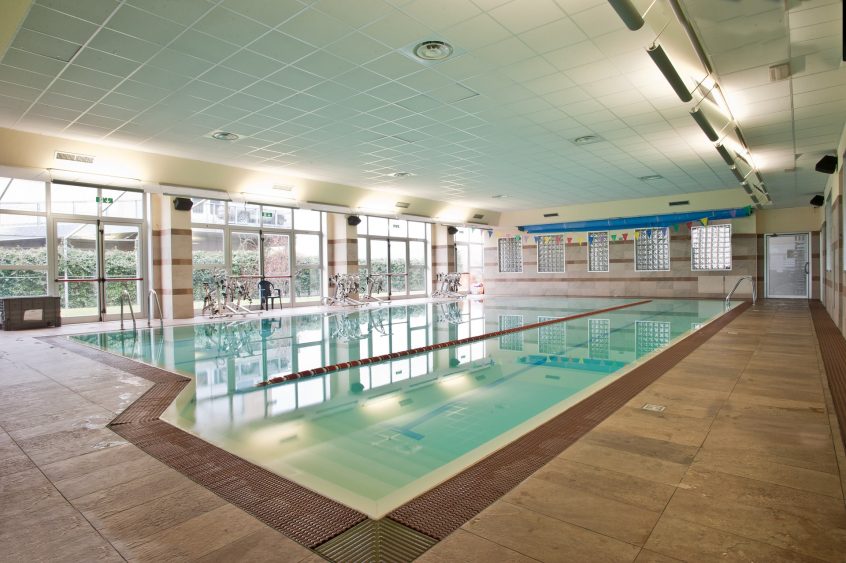When a homeowner makes their first call to a pool/spa builder or service company, they are looking for the expert help only a trained professional can provide. Unfortunately, many of these potential customers, who are often eager to spend money on whatever they need to make their backyard getaways perfect, are met with silence. Calls are not answered. Voicemails are not returned. E-mails never get sent back to online inquiries. No one wins.
This phenomenon is regrettably common among home service companies, including pool and spa service providers. In fact, lack of phone expertise and responsiveness may be the single biggest performance issue currently facing the industry; addressing it could make a huge difference for any pool or spa company.
The value of picking up the phone
The lifeblood of any growing pool and spa company comes from homeowner inquiries, whether they are in the form of phone calls, web forms, e-mails or in-store visits. As such, it makes sense to always pick up the phone, return e-mails or voice mails immediately and focus on driving revenue and value through every single inquiry. So why doesn’t this happen?
The short answer is good phone work is often taken for granted. Someone always assumes the phone is being picked up or that the truly determined customer can always call back.
There is also a cost issue. Paying one employee to man the phones costs money; money that many pool and spa professionals would rather save for other things. One less employee will provide more dollars in the budget. Unfortunately, those short-term savings can hurt growth if pool and spa company operators fail to seize valuable sales opportunities.
Consider the following questions:
- What is a new pool installation sales pitch worth?
- What is the lifetime value of an ongoing pool service customer?
- How much revenue is a pool renovation demo worth?
- What’s the value of a homeowner who wants a hot tub in their backyard?
By doing some simple math, it is clear that unanswered phone calls inevitably cost many profitable opportunities like the ones referenced above.
Increasing marketing returns
A common complaint from pool and spa companies is that their old, reliable, marketing efforts just are not paying off anymore. While this statement has a healthy element of truth to it, the fault does not lie with the marketing, but rather with the followup. By implementing poor phone practices, companies simply do not generate the kind of return on investment (ROI) they should be getting from their media buys.

By implementing poor phone practices, companies simply do not generate the kind of return on investment (ROI) they should be getting from their media buys.
Consider this example: A spa dealer sends out a direct mail package to a carefully selected list of high-end homeowners from a strong database. The package starts to hit mailboxes three days later. Using a tracking phone number, the dealer was able to determine that 100 phone calls came in over a span of 10 days from that direct mail package—but only 85 were answered. The other calls were either ignored or eventually hung up after being on hold for too long. In short, the dealer wasted 15 per cent of its media budget because of poor phone practices.
Though this waste is obvious, the fact remains that many companies in the pool and spa business allow phone calls to go unanswered, do not return voice mails and never follow up on e-mails and/or web forms. It is a chronic problem, one that worsens already diminishing returns on marketing efforts.
How can this problem be fixed? It starts with a review of the company phone bill. Owners and managers must look carefully at how many of the calls they received were connected and how many were lost or never answered at all. They must also determine how many calls went to voice mail, rather than to a staff member.
When it comes right down to it, it is unacceptable for any incoming calls received during working hours to go unanswered. When potential clients come knocking, someone needs to be there to answer the door. Naturally, it is difficult to maintain this standard during peak seasons when the company is at its busiest, but the goal should always be to generate revenue from every possible inbound phone call.
Marketing vs. sales
Another important dilemma many pool and spa companies face in relation to marketing and lead generation is determining what exactly can be considered a qualified lead. This dilemma often leads to a tug of war between a company’s sales teams and marketing teams.
The marketing team, charged with generating demand for a company’s products, creates campaigns and marketing programs to drive as many inbound phone calls, in-store visits and web forms as possible to the company, in order to keep the pipeline of prospects full. It is in the marketing team’s interest to think all of the responses it generates through these programs are qualified. They also put great faith in the sales team to take all those leads and turn them into long-term customers.
The sales team often has a much different viewpoint. In their eyes, very few leads are actually qualified. In fact, salespeople often consider any prospect who does not buy an unqualified lead. This leads to the conflict. Marketing considers all leads to be qualified, while sales believes only certain leads (namely, those they close) should be considered qualified.
The owner of the business must clip the rope in this tug of war. He or she needs to deliver a standard for lead qualification to the company.
Defining lead qualification
The first and most important objective is to create a list of qualified lead criteria. It is critical to firmly establish these standards so everyone within the organization understands what they are—and that they must stick to them. Only then can the marketing vs. sales tug of war be truly put to rest.
Owners who set these strong standards provide a solid baseline that should be used to judge the effectiveness of marketing programs and employee performance. With qualification standards, the question is no longer, ‘Is the marketing team generating enough leads?’ Instead, it becomes, ‘Is the marketing team generating enough qualified leads as defined by company standards?’ The same holds true for the company’s sales team. Complaints about poorly qualified leads will no longer stand up.
Measuring every lead against the company-defined criteria and measuring performance against that same set of standards makes it much easier for owners to judge results, pinpoint areas for improvement and remove the grey areas that so often pervade sales management. In short, strong, constant appointment setting and qualification helps pool and spa companies make better decisions and improve overall performance.
Getting the phones covered
Once lead qualification standards are set, it is time to turn attention to the phones. This is where phone capability and appointment setters come into the picture. In the pool and spa industry, the appointment setter is a person within the organization who handles the phone with prospect customers and sets up sales calls. This is a simple process; however, some companies have multiple people setting up appointments with each using different standards of qualification.

Missed phone calls lead to missed opportunities; no matter what employees are doing, homeowners are still calling, seeking the pool company’s help to solve their problems.
Appointment setters give pool and spa companies the opportunity to deliver a solid and consistent standard for all leads and sales appointments.
Now, most pool and spa business owners will say their employees can simply answer calls. In reality, however, it is much tougher to make this happen than most people realize. In-store staff members are often tied up with customers or are on the phone with other customers, while office workers have other responsibilities to distract them from answering calls. This does not even include the ‘incidentals’ of being an everyday employee. Lunch breaks, trips to the bathroom, personal calls, sick days and vacations all take attention away from the phones.
That said, no matter what employees are doing, homeowners are still calling, seeking the pool company’s help to solve their problems. Those missed calls lead to missed opportunities. Also, incoming calls are not the only point of contact that seems to be lacking in the pool and spa industry; e-mails and web forms are often overlooked, too.
The key to turning all of these inquiries into customers is an immediate call back—and quickly. A recent study from the Massachusetts Institute of Technology (MIT) showed that prospects who submit a web form and are contacted by a company within an hour are six times more likely to become a qualified prospect than those who are contacted after one hour. That could translate into a lot of new pool and spa customers.
Finding outside help
It takes a team approach, including phone reps and store staff, to handle appointment setting correctly. Often, three or more people need to be trained on appointment setting standards to cover all possible calls and e-mails, even at a small company.
If a company does not have the size or scale to maintain an in-house phone team, there are outsourcing options. While this may not seem like the most attractive option, it does have its advantages.

If a pool/spa company does not have the size or scale to maintain an in-house phone team, there are outsourcing options to help reduce missed calls and enable a quicker response to customer inquiries.
First, it provides separation between the phone call responders and the sales and marketing teams. With an outsourced response team, sales and marketing representatives will not be able to influence the lead generation process. In most cases, outsourcing also puts a full team of representatives on a company’s account. This reduces missed calls, enables a quicker response to e-mails and provides the professional response to new potential customers that smaller pool and spa companies often lack.
Certainly, outsourcing is more expensive, but the increased number of profitable opportunities can more than make up for the added cost. By getting more appointments and increasing the number of in-home or in-store sales pitches, the company will ultimately close more sales. That is the outcome everyone wants.
This article was written by Todd Bairstow, and originally appeared on Pool & Spa Marketing [link].
